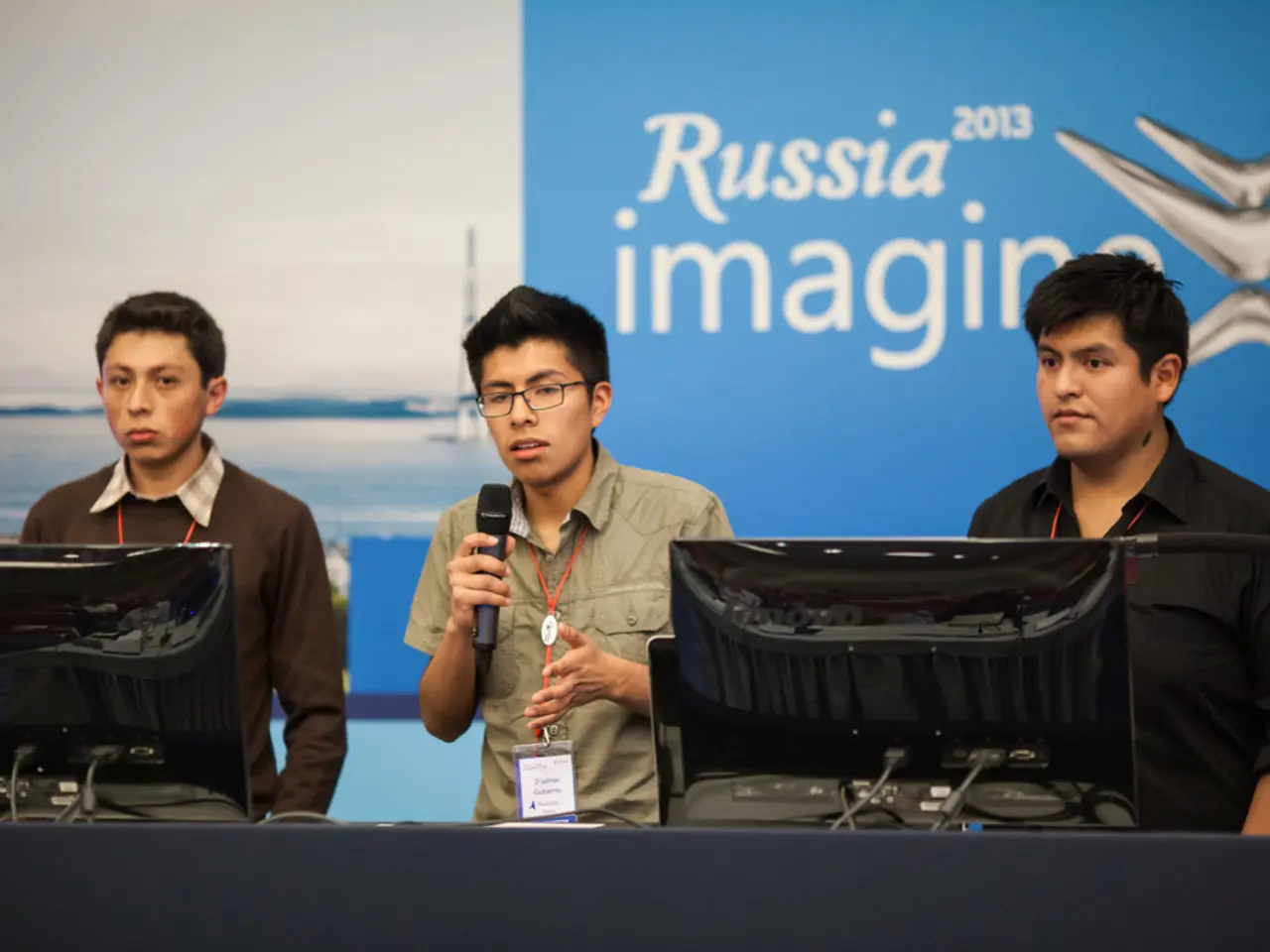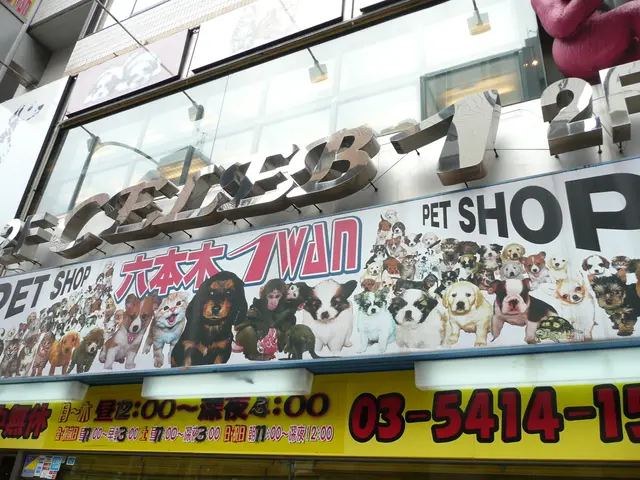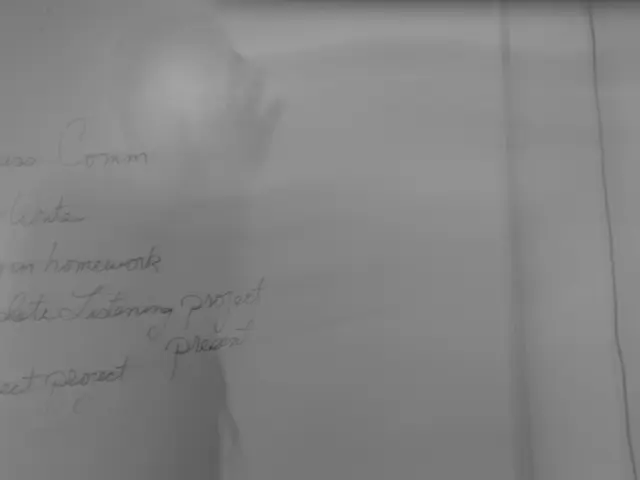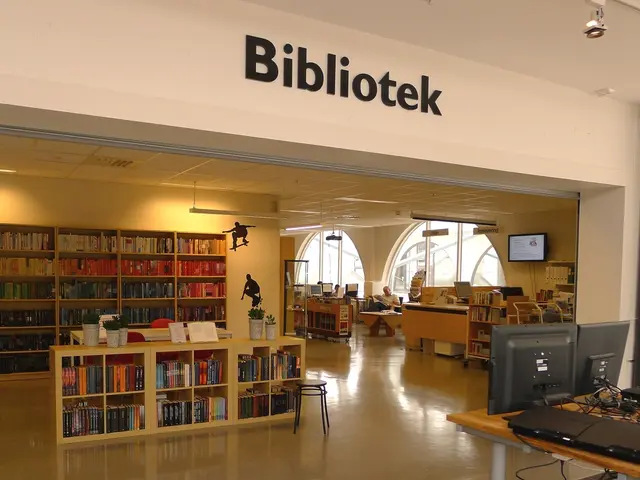Crumbling aspirations and intensifying authoritarian control in Putin's Russia
American businessman Michael Calvey, co-founder of the Russian private equity firm Baring Vostok, found himself at the centre of a high-profile embezzlement case in 2019. The case, stemming from a disputed deal within the Russian fintech/start-up sector, led to Calvey's arrest in February 2019 and subsequent detention for nearly two years.
The allegations against Calvey involved the theft of 2.5 billion rubles from Vostochny Bank, a bank that was part of Baring Vostok's portfolio. The dispute, which was described as a "hardline" case by Moscow judge Artur Karpov,[1] resulted in Calvey's conviction in August 2021 on charges of misappropriation, for which he received a 5.5-year suspended sentence.
The case was widely criticized as controversial, both in Russia and internationally. Despite this, Calvey continued to make business moves after his release. In 2020, he partnered with Russian entrepreneur Oleg Tinkov to build a Mexican fintech, Plata, with the aim of a significant Initial Public Offering (IPO) worth $10 billion.[3]
In a surprising turn of events, Calvey's conviction was nullified by the Russian authorities in April 2024, effectively vacating the case. Following this development, Calvey left Russia and disinvested from his Russian ventures, continuing his career as Chairman of Baring Ventures, a global private equity firm.[1]
Although the Federal Security Service (FSB) or other Russian security agencies are not explicitly mentioned in the available sources related to Calvey’s case, the dispute was highly publicized, suggesting involvement of powerful judicial figures and possibly security bodies in the high-profile nature of the prosecution.[1][4]
Meanwhile, other key figures from the Russian media landscape faced their own challenges. Svetlana (Sveta) Babayeva, a journalist who joined Izvestia newspaper in 2000 with the aim of transforming it into a significant force in post-Soviet journalism, moved to occupied Crimea to oversee a bureau focused on covering the joys of the occupation. She underwent spetsnaz training.[5]
Petya Akopov, another journalist who joined Izvestia, became an ardent supporter of attacks on Ukraine, and his article was removed in 2022 due to being too enthusiastic for the public mood.[5]
Irina Borogan and Andrei Soldatov, former colleagues of Babayeva and Akopov, went on to become well-known commentators on security matters. Borogan covered the 2004 Beslan siege and the authorities' disastrous handling, leading to the deaths of hundreds of hostages.[6] Soldatov served as a war correspondent and is now exiled in London.[6]
Evgeny Krutikov, a member of an elite intelligence family, served as the head of politics at Izvestia. Krutikov, a regime loyalist, expressed tension and bitterness during a video call with the authors.[7]
Calvey, reflecting on his experience and that of Russia, from the Yeltsin-era embrace of globalization to the present, writes that he overestimated human rationality and underestimated the role of geopolitics and nationalism in Russia.[8]
Summary:
- Michael Calvey's embezzlement case in Russia involved allegations of the theft of 2.5 billion rubles from Vostochny Bank. - Calvey was arrested in February 2019, convicted in 2021, and served nearly two years of house arrest. - The conviction was vacated in April 2024, allowing Calvey to leave Russia and disinvest from his Russian ventures. - Calvey's business moves post-case included co-founding a Mexican fintech, Plata, with Oleg Tinkov. - The FSB or other Russian security agencies may have been involved in the high-profile nature of the prosecution, although this is not explicitly stated in available sources. - Other key figures from the Russian media landscape, such as Svetlana Babayeva, Petya Akopov, Irina Borogan, and Andrei Soldatov, faced their own challenges and controversies.
References:
[1] https://www.nytimes.com/2019/02/26/business/michael-calvey-russia-arrest.html [2] https://www.bbc.com/news/business-47863350 [3] https://www.bloomberg.com/news/articles/2020-08-11/michael-calvey-s-russian-venture-is-taking-on-mexico-s-banking-giant [4] https://www.rferl.org/a/calvey-case-russia-baring-vostok-magnitsky-act-us-sanctions/30798437.html [5] https://www.theguardian.com/world/2022/mar/23/russia-media-journalists-crimea-ukraine [6] https://www.theguardian.com/world/2019/jun/07/russian-journalists-andrei-soldatov-irina-borogan-leave-country-amid-pressure [7] https://www.theguardian.com/world/2020/oct/22/russian-media-boss-evgeny-krutikov-blasts-west-in-leaked-audio-tapes [8] https://www.nytimes.com/2021/08/18/opinion/michael-calvey-russia-businessman.html
- The embezzlement case against American businessman Michael Calvey, co-founder of the private equity firm Baring Vostok in Russia, involved allegations of stealing 2.5 billion rubles from Vostochny Bank.
- Calvey's conviction on misappropriation charges was nullified by the Russian authorities in April 2024, which led to his departure from Russia and divestment from his Russian ventures.
- Despite the controversy surrounding Calvey's case, he entered the global business scene once again, partnering with Russian entrepreneur Oleg Tinkov to build Mexican fintech, Plata, aiming for a significant Initial Public Offering (IPO) worth $10 billion.
- The high-profile nature of the prosecution in Calvey’s case raised suspicion about the involvement of powerful judicial figures and possibly security bodies, although this is not explicitly stated in available sources.
- In the Russian media landscape, journalists like Svetlana Babayeva, Petya Akopov, Irina Borogan, and Andrei Soldatov faced their own challenges, controversies, and even exile during this period.
- Michael Calvey, reflecting on his experience and that of Russia, notes that he overestimated human rationality and underestimated the role of geopolitics and nationalism in Russia.
- As business, economy, politics, and general news continue to evolve, Calvey's story underscores the complexity and unpredictability present in global markets, entrepreneurship, personal finance, migration, war and conflicts, and crime and justice.








